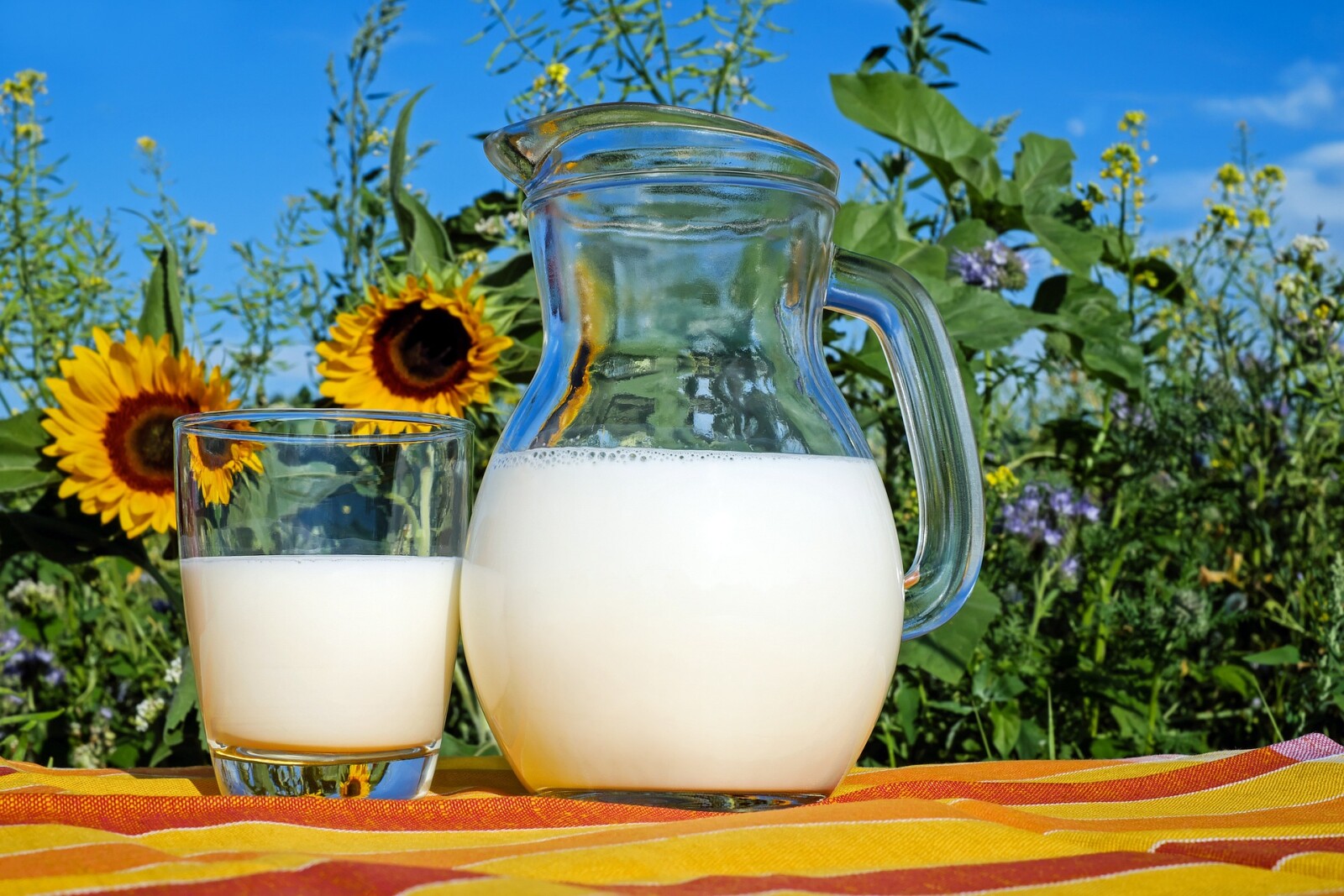
Holistic moms know that processed foods aren’t just bad for our waistlines, but also for our health. An important area of focus is inflammation, which has been linked to a variety of chronic illnesses. Let's take a look at what causes inflammation and how processed foods contribute to it.
Blog Body:
What is Inflammation?
Inflammation is the body’s response to an injury, infection or allergy. It’s an important part of the healing process and helps protect us from further damage or infection. However, when inflammation becomes chronic, it can lead to serious health issues like diabetes, heart disease, stroke, cancer and Alzheimer’s disease.
Processed Foods and Inflammation
Processed foods contain refined grains , added sugar, trans fats, and synthetic ingredients that can cause inflammation in the body. Refined grains are stripped of their fiber and other nutrients during processing, making them higher in calories but lower in nutritional value. Additionally, refined grains stimulate insulin production more than whole grains do—which can lead to weight gain and high blood sugar levels that trigger inflammation. When we indulge in sweets, our bodies break down glucose for energy. This process causes inflammation throughout our bodies, though this inflammation is usually too subtle to notice. In the long run, however, it can contribute to a host of serious health issues—including obesity, diabetes, and cardiovascular disease. Processed foods often contain trans fats (such as hydrogenated oils), artificial sweeteners and additives that all contribute to inflammation in the body as well. These ingredients are low-cost fillers used by food manufacturers to give food a longer shelf life or enhance flavor—but they come with significant consequences for your health.
Practical Tips for Avoiding Processed Foods
The best way to avoid processed foods is by eating more fresh fruits and vegetables instead! Eating a healthy diet rich in fruits and vegetables provides your body with the antioxidants it needs to reduce inflammation naturally. Additionally, avoiding sugars (especially added sugars) is one of the most effective ways to reduce inflammation since sugar increases insulin levels which leads to more inflammation. Lastly, try replacing processed snacks with healthier alternatives such as nuts or seeds for a quick dose of healthy fats which will help reduce inflammation even further! For those who like dips, hummus or other bean dips are fantastic to dip veggies in. If you are getting healthy nutrients from good whole foods, you won't be snacky and grabbing for the unhealthy options.
Conclusion:
When it comes down to it, reducing consumption of processed foods is important if you want to reduce inflammation in the body over time. With so many healthy options available these days – such as fresh fruits & vegetables – there’s no excuse not make healthier choices! So grab some natural snacks today – your body will thank you tomorrow!
My blogs contain some affiliate links.
Any purchase made is a blessing to my family at no extra cost to you!
Thank you for supporting us!


Do you feel like your stomach is always on fire or bloating is an every day occurrence? Does it seem like no matter what you do, no amount of medicine or diet changes can make it go away? Dairy products may be the culprit. Let’s explore why dairy could be causing inflammation in your body, and how reducing consumption can help.
Inflammation is a natural response from the body when something is wrong. It happens when the immune system senses something—a virus, bacteria, or allergen—that doesn’t belong in the body and launches an attack to get rid of it. The problem with inflammation is that it can become chronic if it goes unchecked for too long. Chronic inflammation has been linked to a variety of health problems such as heart disease, diabetes, obesity and even cancer.
One link between dairy products and inflammation comes down to a hormone called IGF-1 (Insulin-Like Growth Factor-1). This hormone is found naturally in dairy products and research has linked increased levels of IGF-1 to increased levels of inflammation in the body. Another concern with dairy products is their high cholesterol content; consuming too much cholesterol can also lead to chronically elevated levels of inflammation throughout the body.
The good news is that reducing your consumption of dairy products can help reduce inflammation in your body. Cutting back on dairy won’t just mean cutting out ice cream; even things like cheese, butter and yogurt should be avoided if possible - anything that is derived from cow's milk is dairy. If you focus on eating nutritious whole foods instead, such as vegetables, fruits, nuts and grains, you will have taken a giant step towards reducing inflammatory triggers in your diet.
Dairy products are one of many sources of inflammation in our diets; other sources include processed foods containing additives and preservatives as well as unhealthy fats like trans fats or saturated fats from animal sources. Reducing our intake of these foods can help reduce overall inflammation levels in our bodies. If you think that dairy may be contributing to your chronic inflammation issues, try cutting back on your consumption for 1-3 months to see if there’s any improvement in how you feel! Good luck!
My blogs contain some affiliate links.
Any purchase made is a blessing to my family at no extra cost to you!
Thank you for supporting us!


If you have ever experienced inflammation, you know how uncomfortable it can be. But many of us carry inflammation and don't even know it. It can be within our organs and tissues affecting many different functions of the body. It’s often hard to pinpoint the exact cause of inflammation, but one cause may be due to the consumption of animal products. Let’s take a closer look at meat and inflammation.
What is Inflammation?
First, let’s quickly define what inflammation is and why it occurs. Inflammation is your body’s response to an injury or infection. It’s a natural defense mechanism; when your body senses something needs healing, it sends out white blood cells to help fight off the invader and repair the damage. This process can cause swelling, pain, redness, and heat in the affected area—all signs of inflammation. Although inflammation is a natural, needed response in our bodies, it can also cause harm when there's too much, too often, too long. In this way, inflammation is an insidious enemy-- often hidden and silent, yet capable of wreaking havoc on our health if left unchecked. It rears its head as diabetes, heart disease, autoimmune disease, cancer, and much more. Understanding its dangers can serve as a potent defense against the development of chronic illness.
The Meat Connection
So how does meat fit into this picture? Meat can be linked to inflammation due to its high levels of saturated fats, cholesterol, and arachidonic acid which clog up our arteries and trigger heart disease and cancer. Many processed meats contain nitrites and nitrates which are known carcinogens (cancer-causing agents). Some studies have indicated that animal proteins may stimulate an inflammatory response in our bodies because they contain certain types of amino acids like arginine and cysteine which can act as pro-inflammatory molecules. Also, meat stimulates insulin-like growth factor-1 (IGF-1) which promotes the growth, proliferation, and spread of cancer. (End of Dieting, Joel Fuhrman, MD.)
The Takeaway
But if you do find yourself suffering from chronic inflammation or other health issues, reducing or eliminating meat from your diet might be one way to help reduce those symptoms. Additionally, incorporating more anti-inflammatory foods like fruits and vegetables high in antioxidants into your meals can also help reduce any underlying inflammation in your body.
At the end of the day, everyone has unique dietary needs—but for those experiencing chronic inflammation or health issues related to their diet, considering reducing or eliminating meat from their diets could potentially make a difference in their overall health and wellbeing. Incorporating more anti-inflammatory foods like fruits and vegetables can also help reduce underlying inflammation in the body while providing essential vitamins and minerals necessary for optimal health.
*I highly recommend finding a plant-based doctor who knows the science to guide you on your journey. Too many doctors are uninformed when it comes to food and health.
My blogs contain some affiliate links.
Any purchase made is a blessing to my family at no extra cost to you!
Thank you for supporting us!


Are you feeling like you missed a night's sleep? Feeling lethargic, foggy-headed, and struggling to remain alert throughout the day? I understand your struggle. Poor quality of sleep has become increasingly common life problem, making it hard for many people to stay productive and energized. So if you're a mom looking for some natural ways to improve your slumber, I have some suggestions for you! Check out these 11 easy steps on how to get better sleep that won't leave any trace of fatigue or exhaustion. With these tips backed by science and real holistic solutions, prepare yourself for some uplifting shut-eye every night!
1. Follow a routine
One of the best ways to get better sleep is to follow a routine. Going to bed and waking up at the same time each day can help to regulate your body’s natural sleep-wake cycle. Establishing a regular bedtime and wake time can also make it easier to fall asleep and stay asleep. Your routine can include things like journaling, expressing gratitude, prayer, light stretching or yoga, an evening bath, or herbal tea, whatever you choose, try to do the same things in the same order each night.
2. Create a comfortable environment
Creating a comfortable environment in your bedroom can also help you to get better sleep. Make sure that your bedroom is dark, quiet, and cool. Darkness promotes melatonin production , which makes us feel sleepy. Consider using blackout curtains or an eye mask to block out light, and earplugs or white noise to reduce noise. You can also diffuse essential oils that help your body relax and help quiet your mind.
3. Limit screen time before bed
It is also important to limit your exposure to screens before bed. The blue light emitted by screens can suppress melatonin, the hormone that makes you feel sleepy. Avoid using phones, laptops, and other electronic devices for at least 30 minutes before bedtime.
4. Avoid caffeine before bed
Caffeine is a stimulant that can keep you awake and make it difficult to fall asleep. Avoid drinking caffeine in the evening and try to limit your intake earlier in the day. It is better to get your energy from natural antioxidants than from artificial stimulants and when you use foods and juices to fuel your energy, your body is better able to relax at bedtime.
5. Exercise during the day
Exercise can help you to sleep better at night. At least a half hour of exercise is beneficial for everyone. Take a short walk if that's all you can do. Your body needs movement during the day and has a harder time relaxing when there hasn't been enough movement. However, it is important to avoid exercising too close to bedtime as this can make it harder to fall asleep. aim to exercise earlier in the day and finish at least 3 hours before you plan on going to bed.
6. Avoid alcohol before bed
While alcohol may make you feel drowsy, it actually disrupts sleep and can make it difficult to stay asleep throughout the night. I avoid drinking alcohol completely, but if you choose to consume alcohol, try not to consume more than one drink per day.
7. Eat a healthy diet
Eating a healthy diet is also important for good sleep. Eating foods that are high in fiber and low in sugar can help promote restful sleep. Eating antioxidants promotes better sleep. Eating too much OR too little can disrupt sleep, so don't overindulge, but be sure to get the right amount of calories for your body. In addition, avoiding large meals before bedtime can prevent indigestion and make it easier to fall asleep. Your body needs a rest from digestion while sleeping, so avoid all late-night snacks so your body can truly rest.
8 . Manage stress levels
Managing stress levels is crucial for good sleep. When we are stressed, our bodies produce cortisol, which is a hormone that makes us feel alert. Cortisol is necessary for certain functions, but too much too often wear down our bodies and make it harder to sleep. Try relaxation techniques such as yoga or meditation, essential oils, or consider talking to a therapist if stress levels are consistently affecting your ability to sleep. This is also a great way to regulate this hormone.
9 . Take breaks during the day
If you have trouble sleeping at night, it may be because you are not taking enough breaks during the day. Our bodies need time to rest and recover, so make sure to take breaks throughout the day. For some people, taking a short nap in the afternoon can also help improve nighttime sleep.
10 . Limit naps
For many people, napping during the day can interfere with nighttime sleep, so limit naps to no more than 30 minutes. If you find yourself feeling tired during the day, try taking a brisk walk instead of taking a nap, or take 10 minutes to meditate and let your body relax. (One caveat - if you have a nursing infant - sleep when they sleep. Don't worry about limiting your naps mama - you need more sleep!)
11 . Go outside
Getting outside during the daytime can help improve nighttime sleep. Exposure to natural light helps regulate our circadian rhythm, which is our internal clock that tells us when we should be awake and when we should be asleep. An hour outside is ideal, but a half hour will do in a pinch. Plus, being outside is so beneficial for our body and soul! So don't just send the kids out - go out with them - you will all benefit.
If you’re having trouble sleeping, don’t despair. There are a number of things you can try to get better sleep. Create a routine and make sleep a priority by doing those things throughout the day that will support your sleep. You may find that you feel better rested and have more energy during the day if you commit to getting enough quality sleep each night. Make sleep a priority, mama — you deserve it!
My blogs contain some affiliate links.
Any purchase made is a blessing to my family at no extra cost to you!
Thank you for supporting us!


We are all exposed to environmental toxins in our everyday life. From the products we use to clean our homes and care for our bodies, to the processed foods we eat and the air we breathe—we are coming into contact with chemicals that can cause inflammation in the body. In this blog post, I’ll break down why environmental toxins cause inflammation and what you can do about it. Let’s get started!
Personal Care Products and Toxic Ingredients
The personal care products you use every day may be doing more harm than good. Many popular skincare, haircare, and makeup products contain ingredients that could be causing inflammation in your body. For example, many shampoos contain sulfates which are harsh chemical agents used as foaming agents. These sulfates strip away natural oils from your scalp which can lead to inflammation and other skin issues like dandruff. Similarly, many beauty products contain parabens which are preservatives that prevent bacteria growth but also disrupt hormones which can lead to inflammation.
Cleaning Products and Toxic Ingredients
The same is true for cleaning products—many of them contain harsh chemicals like ammonia or chlorine that can irritate your eyes, nose, throat, lungs, and skin when inhaled or touched directly. These ingredients may also trigger allergies or asthma attacks if you’re prone to those conditions. But even if you aren't prone to allergies or asthma, these cause issues which to many seem unconnected until the products are removed and other health issues disappear. These cause so many different problems!
Air Fresheners
Throw out any and all air freshers, plug-ins, and candles today! See why here.
Processed Foods and Toxic Ingredients
Processed foods have long been linked to chronic diseases like diabetes and heart disease due to their high amounts of sodium, fat, sugar, and additives like artificial flavors or colors. But what many people don’t realize is that these processed foods also contain hidden toxins like glyphosate which is a weed killer used on genetically engineered crops like corn or soybeans—ingredients found in many processed snacks and meals! Glyphosate has been linked to kidney disease as well as cancer so it's important to read labels carefully when buying food items at the store (or better yet—opt for fresh veggies and other whole foods that do't have a long ingredient list!!).
No matter where we turn these days it seems like the environment is loaded with toxins that can harm us both physically and mentally; however by making small changes in our everyday lifestyle choices we can reduce our exposure to toxins significantly! Avoiding personal care products with known irritants such as sulfates or parabens; using natural cleaning supplies like Thieves Household Cleaner, vinegar, borax, or baking soda; reading labels carefully when purchasing food items; opting for fresh (organic) produce over processed snacks—these simple adjustments will help keep inflammation at bay while still allowing us to enjoy life's little luxuries! By taking an active role in managing our exposure to environmental toxins we can all make a difference in reducing inflammation in ourselves as well as future generations!
My blogs contain some affiliate links.
Any purchase made is a blessing to my family at no extra cost to you!
Thank you for supporting us!



